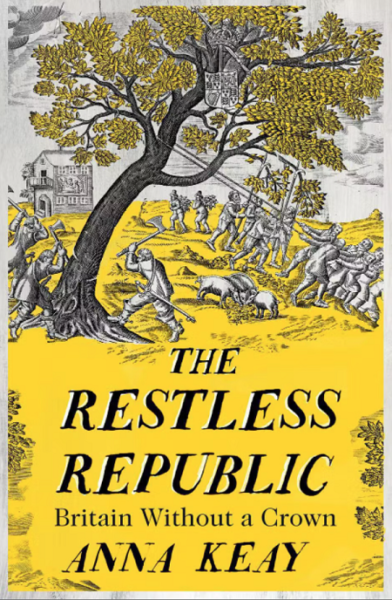Forgotten Weapons
Published 29 Jul 2016http://www.patreon.com/ForgottenWeapons
In the previous video, we looked at the Winchester G30M rifle as it was submitted to Marine Corps trials in 1940. When the trial result came back with the G30M in last place, Winchester immediately assigned David Williams to work on adapting it to resolve the problems found in testing. What Williams did was to replace the tilting bolt with a virtual duplicate of the Garand’s two-lug rotating bolt. Williams also worked to reduce the weight of the gun, and was able to bring it down to a remarkable 7.5 pounds (3.4kg).
This prototype of the rifle (which Winchester optimistically designated the M2, implying that it would supercede the M1 Garand) was actually made largely from M1 Garand forgings, as Winchester was by this time building M1 rifles on contract. The receiver, bolt, and operating rod in this rifle was converted from Garand parts. Clearly it is not a finished product, and shows many signs of being a shop prototype — but it was in this state when it was shown to Rene Studler of the Ordnance Department in early 1941. Studler was impressed by the design, but knew that it would not replace the M1 at that point. However, he urged Winchester to scale the gun down to the .30 Carbine cartridge (which Winchester had themselves developed) and submit it in the second round of the Light Rifle testing which was to happen soon.
Does a two-lug rotating bolt, short stroke gas tappet, and Garand-style operating rod sound like a familiar set of features? Well, there is good reason … Winchester took Studler’s advice, and the scaled-down version was developed in just a few weeks and proved to be the best gun in the trials. It would be developed quickly into the M1 Carbine, and become the most-manufactured semiauto rifle of WWII.
At that point Winchester would set aside the .30-06 side of this rifle design for a little while, as they had plenty of work now with M1 Garand and M1 Carbine production. But we will see the M2/G30M/G30 come back in new form in the next episode …
April 14, 2022
Winchester M2 Rifle
QotD: “… when life was simpler”
There is this memory of “the simple times”.
And then you get hold of primary sources on the thirties or fifties. Let’s say it’s particularly hilarious to read stuff from the right lauding that time of great freedom in either of those decades. Let’s just say that if some of the things happening back then were happening now we’d all be talking about how we were ready for revolution. (And the only reason they weren’t then is that the press was mass-media. You think it’s bad enough now, with a lying press? They had the same, but no way to check it. It was that concentration and lack of individual communication or access to the public by individuals unfiltered by the media/publishers that put us in the situation we’re in, with what is functionally the enemy of western civilization in control of the vital organs of culture. Before you get discouraged, it helps to remember, we’re only now fighting back. Continue fighting, but remember things take time. The larger a movement is, the longer it takes for it to become noticeable, much less prominent in the culture.)
And as for the left thinking that everyone before the oughts were good white Christians or whatever … Oh, sweet summer children. Let’s say when they get their freak on, with witchcraft or being naked in public, or talking about their poly relationships, or whatever the actual hell they have in their heads that day, they rarely if ever (I’ve never seen it) would have managed to shock their ancestors or ancestresses 100 years ago. Those Edwardians … well … Let’s just say they had fewer hangups. Yes, I know what the public image is. But none of them would have worried about things that the left worries about now like “differential of power” or “implied patriarchy” which meant they were much freer to do whatever crossed their heads at the moment. Of course they also thought they would have shocked their ancestors. And I bet you they wouldn’t.
At some point, if you have a chance, read a book called Our Bones Are Scattered about the Indian revolt in Victorian times. I only read it once because it’s a deeply disturbing book, one of those clashes of civilization where you feel sorry for both sides. But it is very well written, and the beginning of the book is … revealing. The British commander was … well … sort of married to a woman who had been sort of married something like six times before and who went from man to man, collecting kids along the way. Notwithstanding which, they were Victorian nobility and had a bunch of kids of their own and …
Let’s just say Victorians aren’t the way we’ve learned to think of them either. In fact you can be sure pretty much no one ever was. People kept and keep the front they need to, but behind the scenes things were always messy and complicated.
Which often makes finding our own way in this messy and complicated way very difficult.
Sarah Hoyt, “Finding Your Way”, According to Hoyt, 2019-02-18.
April 13, 2022
Theodore Dalrymple visits the barber to find out what happened in the French elections
Rather than depend on the untrustworthy political analysis available in the legacy media, Theodore Dalrymple prefers to get the straight story from his Paris barber:

“barber pole” by triviaqueen is licensed under CC BY 2.0
My barber is highly intelligent and from the way he talks, I should guess that he received a decent education in Morocco. I mean no disrespect either to him or to barbers when I say that, in other circumstances, he might have occupied a more elevated position in society. The last time I went to him, we discussed French politics over the snip-snip of the scissors.
“Since I arrived in this country,” he said, “I have heard the same discussions on the same subjects by the same people.”
“France,” he continued, “is like a man who has complained of toothache for 25 years but hasn’t found the time to go to the dentist.”
I suppose, when you come to think of it, that captures the situation in more than one Western country. Naturally, I was eager to hear what he had to say about the election results, which would be as penetrating as that of any professional commentator.
Another customer, in his late sixties I should guess, entered the shop immediately after me. I was worried that his presence might inhibit the discussion, but once in the barber’s chair, my bib around me, I asked the barber, “Did the election results please you?”
I needn’t have worried about inhibition. No sooner were the words out of my mouth than the other customer exploded with anger. He almost trembled with rage, all of it directed against the incumbent (and winner so far), Emmanuel Macron. I don’t recall ever having witnessed a reaction like it.
I knew that those who didn’t like or approve of Macron were said to hate him: Few people, it seems, are merely indifferent to him. I’m no great admirer of him myself, and I think in his own way he’s potentially dangerous: He’s determined to push ahead with European integration that will, sooner or later, lead to an explosion. But to witness the visceral hatred toward him nevertheless shocked me.
He has long been accused of being the president of, or for, the rich. That he once worked for the Rothschild bank only encourages this view. There is in the accusation the larger assumption that the interests of the rich and those of everyone else are diametrically opposed and necessarily irreconcilable.
Few people can escape entirely or for very long thinking of an economy as a cake, such that a larger slice for you is necessarily a smaller one for me and vice versa. And since the slices of the supposed cake that most of us have are distinctly modest by comparison with those of the rich (the rich being those with at least five times as much as we), the room in our minds for resentment is ample. And even though I know that the metaphor of an economy as a cake is a dangerous one — how many millions were killed in the name of economic egalitarianism in the 20th century! — still I catch myself occasionally feeling resentful at the pharaonic incomes of people who seem to me not to deserve them, though I’m not myself yet on the breadline and have no desire either for great wealth.
Life in a German U-Boat – WW2 Special
World War Two
Published 12 Apr 2022The German U-Boats were one of the most dangerous armed forces of World War II. From the North Sea to the Mexican coast to the Cape of Good Hope, everywhere they put fear into the Allied merchant marine. But what was life like on a German submarine? What dangers did the crew face? How did they endure the long voyages far away from home?
(more…)
A new look at the Commonwealth and the Protectorate of Oliver Cromwell
In The Critic, Miranda Malins reviews a new history of the period between the execution of Charles I and the Stuart restoration of Charles II, The Restless Republic: Britain Without a Crown by Anna Keay:
This evasion is not for the historian Anna Keay. Faced with these collective shortcomings (“This book was born of ignorance,” she explains in opening), she explores this most dynamic of decades, looking it squarely in the face. With her, we roam around the period, the broad chronological narrative softened through a selection of nine interwoven biographies ranging from the irrepressible newspaperman Marchamont Nedham, to the indomitable royalist Countess of Derby, from the brilliant scientist William Petty to the dreaming Digger Gerrard Winstanley.
This structure achieves a broad perspective and rare realism, giving the reader the sense of dipping and diving through the restless waves of the republic and taking them to all corners of the new Britain forged in the fire of three Civil Wars. As expected, we travel from the trial and execution of Charles I to the Restoration of his son, but Keay’s achievement is to make the shape-shifting years of the kingless Commonwealth and Protectorate that lie between more thrilling than either royal bookend, demonstrating how far from inevitable the return of the Stuarts was. There is no “high road to Restoration” here, but rather a snaking maze of paths striking off in new directions and looping back: an uncharted landscape for Keay’s characters to navigate where every choice counted.
The result is a panoramic and pulsating drama every bit as restless as the republic it captures so well. Indeed the “Restless” adjective of the title perfectly conjures the progressive spirit of Britain without a crown: unstable and dangerous, yes, but as a result, experimental and unafraid. As Keay puts it: “The 1650s was a time of extraordinarily ambitious political, social, economic and intellectual innovation, and it was not a foregone conclusion that the British republic would fail.”
This portrait will be, for many, a revelation. Far from the dour, militaristic regimes of popular imagination, life under the Commonwealth and Oliver Cromwell’s Protectorate emerges as innovative and exciting: the effect of the hitherto unimaginable act of abolishing the monarchy and House of Lords after years of transformative conflict being to unleash an energetic spirit of ambitious experimentation and industry.
We feel this bold energy in the meetings of the Oxford Experimental Philosophy Club (which would become the Royal Society in 1660) and its young member William Petty managing to survey the whole of Ireland in record time despite having no cartographical experience; in failed cloth trader Gerrard Winstanley’s determination to dig the new Jerusalem that had come to him on an autumn ramble; in Marchamont Nedham escaping Newgate prison and picking his way through several dangerous changes of side, pen in hand, always managing to land cat-like on his feet through sheer commercial nous and audacity.
How Is a Classic Book Really Made?
Darbin Orvar
Published 11 Aug 2021Going over the basic steps of #bookbinding and making an old fashioned book from scratch, starting with downloading a book, editing in InDesign, printing & finally binding.
Become a patron: http://patreon.com/darbinorvar
Buy a wax polish: http://www.darbinorvar.com/products-w…Book Files in the Shoppe:
Candide by Voltaire:
http://www.darbinorvar.com/misc/volta…
John Stuart Mill Autobiography:
http://www.darbinorvar.com/misc/js-mi…
Vice Versa by Thomas Anstey Guthrie:
http://www.darbinorvar.com/misc/vice-…Products Used: (Affiliate)
Printer: https://amzn.to/3lQkDAh
Paper: https://amzn.to/3jIGmaD
Bone Folder: https://amzn.to/3ix4NbH
Book board: https://amzn.to/3AyYaM2
Fabric: https://amzn.to/2U83uXr
Glue: https://amzn.to/3fU0yFkMailing Address:
Darbin Orvar
PO BOX 1101
Goochland, VA 23063How to find Linn @ Darbin Orvar
https://www.christonium.com/darbinorvar/ – Articles & Product Reviews
http://youtube.com/darbinnotes – My Second Channel
http://twitter.com/darbinorvar
http://instagram.com/darbinorvar
QotD: Architectural arrogance
While most of the architectural establishment has responded to the op-ed with noticeable silence, Mark Lamster, architecture critic for the Dallas Morning News, did bravely publish a post on Facebook in which he began by quoting the opinion piece: “We’ve taught generations of architects to speak out as artists, but we haven’t taught them how to listen.” Lamster then commented, “super-smart nyt op-ed from Martin Pedersen and steven bingler [sic].”
What is most telling, however, is the vitriolic response the op-ed triggered in Aaron Betsky. Called “one of the 21st century’s architectural power brokers,” Betsky is the former head of the Cincinnati Art Museum, and was director of the 2008 Venice International Architecture Biennale, the most important architecture show in the world. An architectural priest and patrician, he is to the profession what The New York Times is to the chattering classes: a voice of the high-status quo. Indeed, he writes for Architect, the official magazine of the AIA.
Betsky rained down on Bingler and Pedersen with ridicule and scorn: Their piece was “so pointless and riddled with clichés as to beggar comprehension.” He summarized their position: “we have three of the standard criticisms of buildings designed by architects: first, they are ugly according to what the piece’s authors perceive as some sort of widely-held community standard (or at least according to some 88-year old ladies); second, they are built without consultation; third they don’t work.”
Yet Betsky then admitted, “All those critiques might be true.” They are irrelevant, he claims, since architecture must be about experimentation and the shock of the new. (Why this should be the case he does not say.) And sometimes designers must stretch technology to the breaking (or leaking) point: “The fact that buildings look strange to some people, and that roofs sometimes leak, is part and parcel of the research and development aspect of the design discipline.” Ever brave, he is willing to let others suffer for his art.
At no point did Betsky consider the actual human beings, the unwilling guinea pigs who live in the houses. He implicitly says of the poor residents: Do their roofs leak? Let them buy buckets. And as for sickness-inducing mold, there’s Obamacare for that. Betsky also does not consider what a leaky roof means to people whose prior homes were destroyed by water. The architects, having completed their noble experiments, effectively say like the arrogant King Louis XV of France: “Après moi, le deluge” [After me, the flood]. No wonder architects have an image problem.
Justin Shubow, “Architecture Continues To Implode: More Insiders Admit The Profession Is Failing”, Forbes, 2015-01-06.
April 12, 2022
Last War Patrol of HMS Terrapin
The History Guy: History Deserves to be Remembered
Published April 11, 2022On her seventh war patrol, in the south Java Sea, the T class British submarine HMS Terrapin and her crew had faced the terror of battle and barely survived. Badly damaged and far from home, sometimes the drama of war is not just in the battle, but in the voyage home.
Check out our new community for fans and supporters! https://thehistoryguyguild.locals.com/
This is original content based on research by The History Guy. Images in the Public Domain are carefully selected and provide illustration. As very few images of the actual event are available in the Public Domain, images of similar objects and events are used for illustration.
You can purchase the bow tie worn in this episode at The Tie Bar:
https://www.thetiebar.com/?utm_campaign=BowtieLove&utm_medium=YouTube&utm_source=LanceGeigerAll events are portrayed in historical context and for educational purposes. No images or content are primarily intended to shock and disgust. Those who do not learn from history are doomed to repeat it. Non censuram.
Find The History Guy at:
New community!: https://thehistoryguyguild.locals.com/
Please send suggestions for future episodes: Suggestions@TheHistoryGuy.netThe History Guy: History Deserves to Be Remembered is the place to find short snippets of forgotten history from five to fifteen minutes long. If you like history too, this is the channel for you.
Awesome The History Guy merchandise is available at:
https://teespring.com/stores/the-history-guyScript by THG
#history #thehistoryguy #WWII
Experimental video embed from Rumble.com. Please let me know if you have problems viewing this video.
How to Make a Royal Marines Officer: Part 1 (1989)
Royal Marines
Published 13 Sep 2012First transmitted in 1989, this is the first part of a programme that follows the progress of 29 men who want to be Royal Marine officers. After arriving at Commando Training Centre, Devon, they find that their fortitude is tested to the very limits as they undertake the All Arms Commando Course to earn their green berets.
Mark Steyn on the first round of the French Presidential election
It must seem uncanny to Americans that the French can hold a vote, count all the votes, and announce the results all within the same 24-hour window …
Say what you will about la République française but, unlike America, its election operations are not a rusted malodorous sewer of brazenly corrupt practices. So the election was held, the votes were counted in hours, and the official result was known by 1am Paris time. There are no unmarked vans motoring the Dordogne or the Pas de Calais in the dead of night bearing additional votes sufficient to the need.
That speaks well for any nation. Alas, not much else about yesterday does. The Top Three is as follows:
Emmanuel Macron 27.6 per cent; Marine Le Pen 23.41 per cent;
Jean-Luc Mélenchon 21.95 per cent.Mme Le Pen is designated by the BBC “far right” and M Mélenchon “hard left”. I am unclear whether, in Beeb parlance, it is worse to be “hard” than “far. But, be that as it may, they could at least cease applying the label “mainstream” to candidates who can’t crack five per cent, which is the threshold below which your election expenses are not covered by the French state.
On Friday’s Clubland Q&A I mentioned en passant that I’m all about the urgency: The west will die unless we change what we’re doing very fast. Yesterday was yet another of those election nights when the people turn but passing slow. Especially after the buzz about a Le Pen surge and a looming Macron humiliation, last night she didn’t have a spectacular breakthrough and he survived.
There will now be a fortnight to the run-off in which the forty per cent of French voters who cast their ballots for “hard left”, soft left, Green left and nutso left will be told that a vote for other than Macron is a vote against democracy itself. Mme Le Pen ran the blandest, most inoffensive campaign she has ever run, leaving it to the “even farther right” Éric Zemmour to do all the heavy lifting on la fenêtre d’Overton. And in the end all that got her was a couple of extra points in the first round.
We will see how well that approach withstands the onslaught already under way. The one man who could make a difference is the soi-disant “hard leftie”, M Mélenchon. His own surge attracted less attention in the last week or two, but it’s likely that, had not M Zemmour bungled his response to the war, the even-more-far rightist would have drawn enough votes from Mme Le Pen to enable Mélenchon to come through the middle and give France a run-off between a bloodless globalist and a full-bore Marxist.
In pocketbook terms, the gap between “hard left” and “far right” is now barely detectable: Mme Le Pen is pledging that no one under thirty will pay tax. There is surely plenty of overlap between the Mélenchon and Le Pen voters. Yet his priority was plain at last night’s speech, because he said it four times:
Il ne faut pas donner une seule voix à Mme Le Pen.
Not a single vote for Marine!
So even the hardcore class-warrior shrugs: Better the globalist you know …
Calvin Coolidge: The Silent President
Biographics
Published 27 Sep 2021Simon’s Social Media:
Twitter: https://twitter.com/SimonWhistler
Instagram: https://www.instagram.com/simonwhistler/This video is #sponsored by Squarespace.
Source/Further reading:
Miller Center, in-depth overview: https://millercenter.org/president/co…
History Today, overview: https://www.historytoday.com/archive/…
New Yorker, “The case for Coolidge” (cached): https://webcache.googleusercontent.co…
NY Times, “Coolidge, the great refrainer”: https://www.nytimes.com/2013/02/17/bo…
NY Times, 1933 obituary for Coolidge: https://archive.nytimes.com/www.nytim…
Atlantic, “Coolidge and depression”: https://www.theatlantic.com/magazine/…
Politico, “How Coolidge survived the Harding-era scandals”: https://www.politico.com/magazine/sto…
History, “Boston Police Strike of 1919”: https://www.history.com/this-day-in-h…
Coolidge letter written after death of his son: https://www.shapell.org/manuscript/pr…
QotD: Writers are like otters
Tor editor Teresa Nielsen Hayden had a wonderful rant some years back. She had been talking to an animal trainer, who explained to her why otters were untrainable. Other animals, it seemed, when given their food reward or whatever by their human handler, would seem to think, “Great, he liked it! I’ll do that again!” Otters, by contrast, would seem to think, “Great, he liked it! Now I’ll do something else that’s even cooler!” Writers, Teresa concluded in a moment of Zen enlightenment, were otters. At least from an editor’s point of view.
When I boot up a new book in my brain, I am not greatly interested in what has and hasn’t won awards. I want to write something else that’s even cooler.
Lois McMaster Bujold, interview at Blogcritics, 2005-05-24.
April 11, 2022
Republic to Empire: The Ides of March to Actium
seangabb
Published 13 Mar 2021In 120 BC, Rome was a republic with touches of democracy. A century later, it was a divine right military dictatorship. Between January and March 2021, Sean Gabb explored this transformation with his students. Here is one of his lectures. All student contributions have been removed.
(more…)
Ours is a fundamentally unserious culture, two examples
Chris Bray provides some examples of just how decayed western culture has become in our headlong flight toward total unseriousness:
In Europe this month to lead the diplomatic response to a war, the Vice-President of the United States responded to a question about refugees by giggling and cackling and babbling in typical form:
And then the “fact-checkers” at Reuters explained that she actually didn’t giggle and cackle and babble, because, okay, she did cackle and giggle and babble, but she didn’t cackle and giggle and babble specifically about the refugees, so it doesn’t count: “It is clear from viewing the longer video in context that Harris and Duda laughed at the awkwardness of not knowing who should speak first. There is no evidence that Harris was laughing at the refugees or the crisis in Ukraine.” The question was about refugees, and she laughed — she laughed a lot — right after the question, but Reuters apparently called no tagbacks before the play, so no points accrue.
So we have an awkward and ineffective playactor who occupies the position of a political leader, but lacks the stature or ability to go along with it, and we have journalists who labor to protect people in powerful political positions from the possibility that people will notice who they really are and what they really do. We have political leaders who aren’t political leaders, and journalists who aren’t journalists: the form without the substance.
Meanwhile, a recent debate on the topic of free speech at Yale Law School — the nation’s top-ranked law school, which produces presidents and Supreme Court justices — began with law students screaming abuse (“I’ll fight you, bitch”) at one of the panelists, before walking out as a group and continuing to shout and pound on the walls of the adjacent hallway.
Now: The students were angry at the panelist, the bitch they wanted to fight, because she’s an anti-trans social conservative, and couldn’t you just die? But the thing that law students are learning to do is be lawyers — advocates for a position in a formalized exchange of competing views, in controversies that play out in open court. They’re training at the profession of making an argument. The point of sitting through an argument made by a person whose views you despise is that you can learn about something you want to fight against; you can see what the enemy says, and how she says it, and so do a part of the work of preparing yourself to advance a different position. So we have law students, people training for a debate-and-exchange-centered profession, who don’t want to hear things they don’t agree with. It’s like a minor league baseball player saying he refuses to touch a baseball, because baseballs offend him, but anyway, when are you assholes sending me up to the major leagues? We have people who want to occupy the profession of the law without preparing for the substance of professional engagement with competing positions: the form without the substance.
(Doing what journalists do, now, the fact-checkers explain that none of this puts points on the anti-free-speech scoreboard: “The students made their point at the very start of the event and walked out before the conversation began.” It is precisely the point that 1.) law students 2.) walked out before the conversation began. In ten years, oral argument before the Supreme Court will be that Woke lawyers stand up and scream I’M NOT GONNA LISTEN TO THIS SHIT, YOU ASSHOLES at the justices, then storm out and descend into a long round of day-drinking while waiting for the court to rule in their favor, because oh my god they CAN’T EVEN.)
Book Review: Sturmgewehr! From Firepower to Striking Power (New Expanded Edition)
Forgotten Weapons
Published 17 Sep 2017Get your copy from Collector Grade Publications: http://www.collectorgrade.com/bookshe…
Collector Grade is known for being a premiere publisher of technical firearms reference books, and I would be willing to argue that Sturmgewehr! by Hans-Dieter Handrich is the best book they have yet printed. The book was originally printed in 2004, and by the time I started looking for a copy myself, it was out of print and the price had jumped to at least $250, when I could even find a copy. I could never quite bring myself to pay that much, and so I was very excited when I learned that an expanded second edition was in the works. Well, that second edition is available now, and it’s even better than I had anticipated.
What makes Sturmgewehr! such an excellent book in my opinion is how it tackles the story of the MP43/MP44/StG44 from several different angles in depth. It has the mechanical development of the gun from prewar experiments to the open-bolt MKb-42 trials guns to the production versions. But it also puts those guns in historical context, how they related to the other weapons being used by both Germany and other nations. It discusses how the design criteria of the Sturmgewehr were arrived at, in terms of logistics and manufacturing methodologies. It explains in detail the political disagreements and convoluted process of weapon design and adoption in Germany, including the three direct rejections of the concept by Hitler.
In short, it gives you the fully-rounded story of how the German military conceived and implemented a whole new class of small arms. In this way, it is really much more than just a book about a single gun’s history — what you learn reading Handrich’s work will give you insight into virtually all arms design programs of the 20th century, from the Chauchat to the 7.62mm NATO rifle trials to the SA80.
If you already have a copy of the original work, you will probably want this one as well, to get the additional 120 pages of information that have been added. And it should go without saying that if you don’t have the original, you should absolutely get a copy of this new edition before it also falls out of print!
http://www.patreon.com/ForgottenWeapons
Cool Forgotten Weapons merchandise! http://shop.bbtv.com/collections/forg…
If you enjoy Forgotten Weapons, check out its sister channel, InRangeTV! http://www.youtube.com/InRangeTVShow












